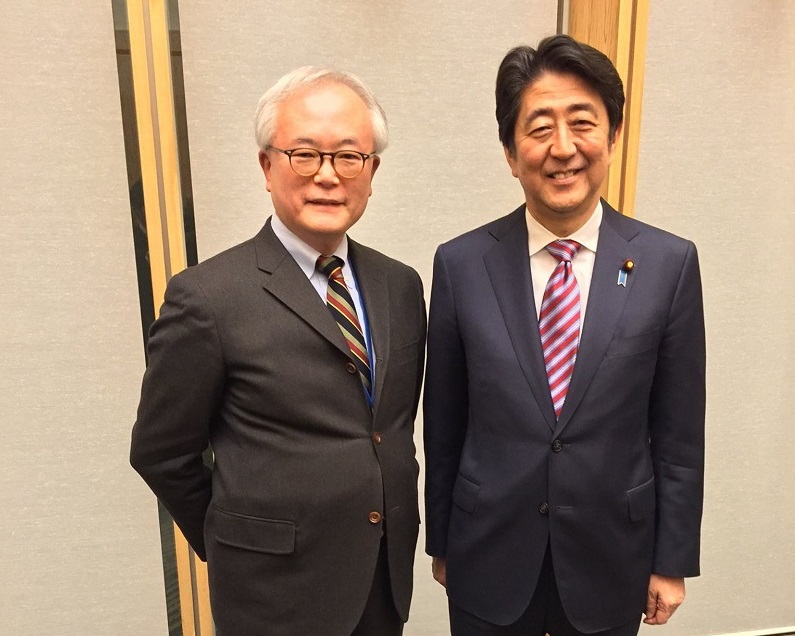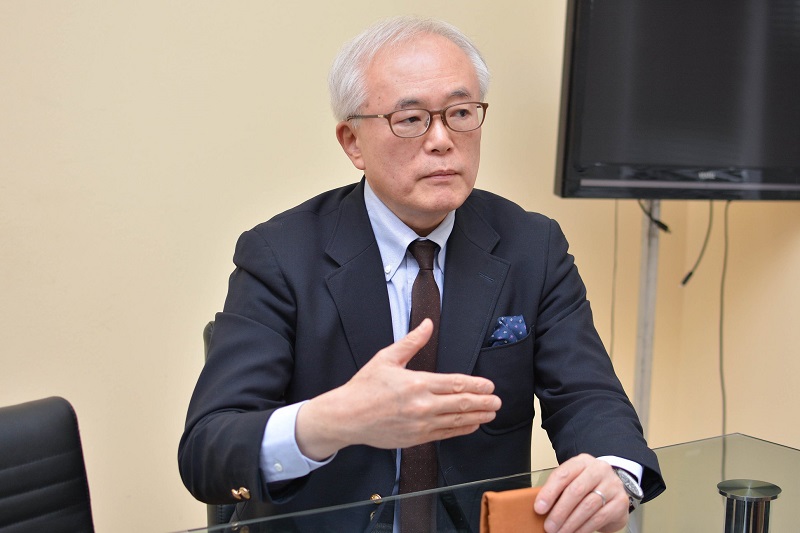



Arab News, Tokyo
Khaldon Azhari
Despite Japanese officials saying that Shinzo Abe’s planned trip to the Middle East would be canceled as a result of the tension arising between Iran and the United States, the Japanese prime minister decided to go ahead with the trip and in particular view first-hand the changes being undertaken in Saudi Arabia.
Tomohiko Taniguchi, a special adviser to Prime Minister Abe, offered his perspective on how Abe views the situation in Saudi Arabia, a country seen by the government in Tokyo as a leader in the Muslim world.
“It is important for Prime Minister Abe to look at the changes gathering pace in Saudi Arabia through his own eyes, putting aside what the international media have to say," Taniguchi said in an interview with the Arab News.
Abe’s tour of the Gulf region includes visits to Saudi Arabia, the United Arab Emirates and Oman.
The trip was planned some time ago, but shortly before Abe was supposed to leave, a military confrontation between America and Iran erupted. The USA attacked and killed Iran’s Revolutionary Guards Commander Gen. Qasem Sulaimani and Iran retaliated by attacking U.S. bases in Iraq with missiles.
Japanese officials were quick to let the media know that Abe’s tour would likely be canceled due to the volatile situation.
Japan’s Foreign Ministry in Tokyo issued an alert and requested all Japanese people to leave Iraq immediately.
However, Prime Minister Abe recognized the importance of the trip and insisted that it go ahead as planned, despite officials advising him not to go.
An important aspect of the tour was to allow Abe to explain his intention to dispatch Japan Self-Defense Forces to the region and to help "de-escalate" the tension there. But he was also very keen to visit Saudi Arabia.
"Shinzo Abe wanted to develop his own views about where Saudi Arabia is heading over the next 30 or 40 years, during which the Saudi Crown Prince Mohamed bin Salman could well stay in power, and to see what the country will look like,” Taniguchi elaborated.
"Already at the airport, we saw many women's faces. Changes in their society introduced by the current leadership has been supported by the nation's youth, and particularly, their women.
“To help him see how the future will develop there, the Crown Prince is showing unique hospitality in having Shinzo Abe for both a meeting and a dinner party in his private desert residence.
“They will discuss the Middle East situation and the post-oil economy where Saudi Arabia could gain a tremendous boost by increasing the number of pilgrimage visitors from 10 million to 30 million, which is equal to the number of inbound tourists to Japan.”
Taniguchi, who is accompanying Abe, added: “On a more pragmatic level, the Crown Prince will seek advice from Shinzo Abe as to what his government ought to do in making the upcoming G20 meeting a success, as Abe's handling of the Osaka G20 in 2019 went very well indeed.”